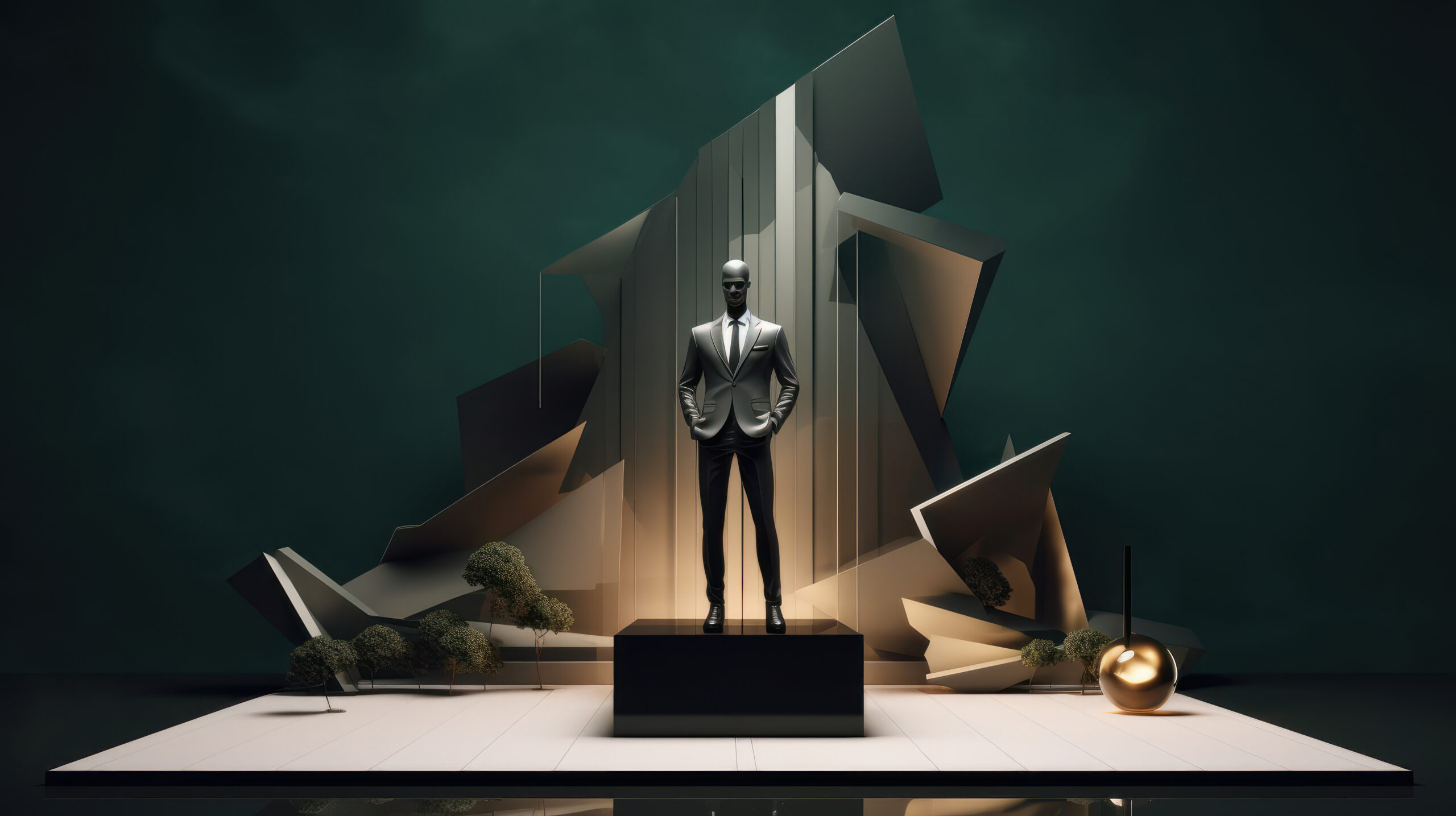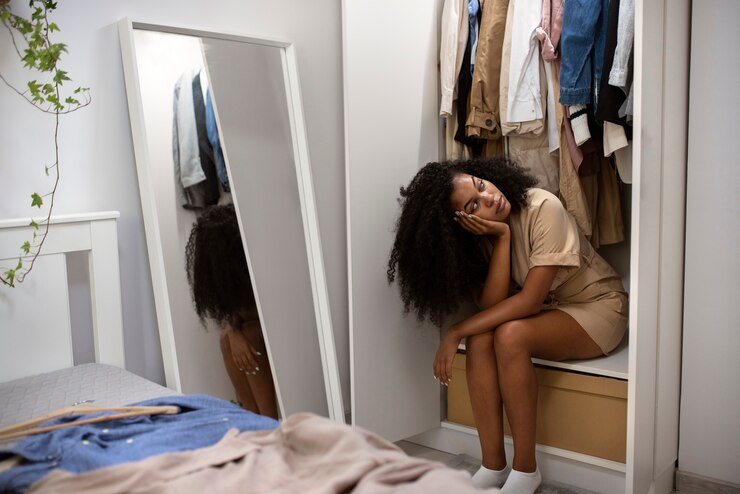“10 Essential Tips for Mastering Men’s Fashion 2024”

Introduction: Mastering Men’s Fashion Dressing
In the fast-evolving world of fashion, mastering men’s fashion dressing can seem like a daunting task. With changing trends and evolving styles, staying updated is crucial. This comprehensive guide will walk you through 10 essential tips for mastering men’s fashion dressing in 2024, offering actionable advice to help you elevate your style and stay ahead in the fashion game.
1. Understanding the Basics of Men’s Fashion Dressing
a. Fit is Everything
The foundation of any great outfit is fit. Ensure your clothes fit well, complementing your body shape. Whether it’s a tailored suit or casual wear, proper fit can drastically enhance your appearance. Avoid overly tight or baggy clothing, as it can detract from your overall style.

b. Quality over Quantity
Investing in high-quality pieces pays off in the long run. Opt for well-made fabrics and classic designs that won’t go out of style quickly. Quality garments not only look better but also last longer, providing better value for your money.
c. Versatility Matters
When building a wardrobe, focus on versatile pieces that can be mixed and matched. Neutral colors and classic styles work well across various occasions, allowing you to create multiple outfits with fewer items.
2. Embracing Seasonal Trends
a. Spring and Summer Trends
In warmer months, lightweight fabrics and vibrant colors are popular. Incorporate pastel shirts, linen trousers, and bright accessories to stay on trend. Look out for floral prints and short-sleeve button-ups that add a fresh look to your wardrobe.
b. Fall and Winter Trends
As temperatures drop, opt for layered looks with woolen coats, chunky sweaters, and tailored blazers. Darker shades and rich textures like corduroy and flannel dominate fall and winter fashion. Don’t forget scarves and leather boots to complete your ensemble.
3. Mastering the Art of Layering
a. Layering Basics
Layering is key to versatile dressing. Start with a base layer, such as a fitted T-shirt or shirt, and build up with sweaters, jackets, or blazers. Ensure each layer complements the others in color and style for a cohesive look.
b. Experiment with Textures
Mix different textures to add depth to your outfit. Combine smooth fabrics with rough textures, such as pairing a wool sweater with denim jeans or a leather jacket over a cotton shirt.
4. Building a Capsule Wardrobe
a. What is a Capsule Wardrobe?
A capsule wardrobe consists of a small collection of essential, timeless pieces that can be mixed and matched effortlessly. Focus on classic items like a white dress shirt, dark jeans, and a blazer.

b. Essential Pieces to Include
- Tailored SuitWhite Dress Shirt
- Dark Denim Jeans
- Neutral Chinos
- Casual Sneakers
- Leather Dress Shoes
- Versatile Blazer
5. Accessorizing with Style
a. The Power of Accessories
Accessories can transform a simple outfit into a stylish statement. Consider adding watches, belts, and sunglasses to enhance your look. Choose accessories that reflect your personal style and complement your outfit.
b. Choosing the Right Accessories
Opt for classic watches and leather belts that match your shoes. For a polished look, coordinate your accessories with your clothing and avoid over-accessorizing.
6. Incorporating Patterns and Prints
a. Patterns for Every Occasion
Patterns and prints can add interest to your outfit. Incorporate stripes, checks, and paisleys in a balanced way. Use patterns sparingly to avoid overwhelming your look.
b. Mixing Patterns
When mixing patterns, ensure they vary in scale and color. For example, pair a striped shirt with a plaid blazer. Stick to a common color palette to maintain harmony in your outfit.
7. Choosing the Right Footwear
a. Types of Footwear
Invest in a variety of shoes to suit different occasions. Essential types include dress shoes, casual sneakers, loafers, and boots. Each type serves a specific purpose and complements various styles.
b. Caring for Your Footwear
Proper care extends the life of your shoes. Clean them regularly, polish leather shoes, and store them properly to maintain their shape. Rotate your footwear to prevent wear and tear.
8. The Importance of Grooming
a. Grooming Basics
Good grooming is essential for a polished appearance. Maintain a neat hairstyle, trim facial hair, and practice regular skincare. Grooming complements your style and enhances your overall look.
b. Personal Hygiene
Ensure cleanliness and freshness by adhering to a regular grooming routine. Use deodorants, maintain oral hygiene, and keep your clothes clean to present yourself well.

9. Staying Updated with Fashion Trends
a. Following Fashion Influencers
Stay updated with the latest trends by following fashion influencers and designers. Platforms like Instagram and Pinterest offer inspiration and insights into current styles.
b. Fashion Shows and Magazines
Attend fashion shows or read magazines to understand upcoming trends. This knowledge helps you adapt your wardrobe and stay stylish throughout the year.
10. Creating Your Personal Style
a. Define Your Style
Identify what suits you best based on your body type, preferences, and lifestyle. Create a signature look that reflects your personality and makes you feel confident.
b. Experiment and Evolve
Fashion is an evolving journey. Experiment with different styles and trends to discover what works best for you. Don’t be afraid to evolve your style as you grow and change.
11. Exploring Fashion Subcultures
a. Streetwear
Streetwear continues to influence mainstream fashion, blending casual, comfortable pieces with high-fashion elements. Popular items include oversized hoodies, graphic tees, and sneakers. Embrace streetwear by incorporating bold prints and relaxed fits into your wardrobe.
b. Preppy Style
The preppy style emphasizes classic, polished looks often associated with traditional American collegiate fashion. Key pieces include button-down shirts, khakis, and blazers. Layer with sweater vests and accessorize with loafers for a refined appearance.
c. Minimalism
Minimalist fashion focuses on simplicity and clean lines. It often features a neutral color palette and streamlined silhouettes. Key items include monochrome outfits, tailored trousers, and simple tees. Embrace minimalism for a sophisticated, understated look.
12. Sustainable Fashion Choices
a. Eco-Friendly Materials
Opt for clothing made from sustainable materials such as organic cotton, bamboo, or recycled fabrics. Brands focusing on eco-friendly production help reduce environmental impact and promote ethical fashion practices.
b. Second-Hand Shopping
Exploring second-hand stores or vintage shops offers a sustainable alternative to buying new. You can find unique pieces while supporting a circular fashion economy. Additionally, vintage clothing often adds a distinctive touch to your wardrobe.

c. Ethical Brands
Research brands known for their commitment to ethical production and choose those that align with your values.
13. The Role of Personal Style
a. Express Yourself
Fashion is a form of self-expression. Whether it’s through bold colors, unique patterns, or specific accessories, let your style showcase who you are.
b. Adapt and Evolve
Experiment with different looks and adapt your wardrobe to reflect changes in your lifestyle, preferences, and trends. Embrace new styles while staying true to your personal taste.
14. Common Fashion Mistakes to Avoid
a. Over-Accessorizing
Stick to a few key pieces and ensure they complement your attire. Avoid cluttered or mismatched accessories.
b. Ignoring Fit
Wearing clothes that don’t fit well can detract from your style. Ensure all garments are tailored or adjusted to fit your body properly. Avoid overly tight or loose clothing that can affect your overall appearance.
c. Neglecting Care
Proper garment care extends the life of your clothes. Follow washing and storage instructions to maintain fabric quality. Regularly clean and repair your clothing to keep it in good condition.
15. Building Confidence Through Fashion
a. Wear What Makes You Feel Good
Confidence comes from wearing clothes that make you feel comfortable and self-assured. Choose outfits that enhance your body shape and align with your personal style. Feeling good in your clothes translates to a confident demeanor.
b. Experiment with New Looks
Step out of your comfort zone and try new styles. Experimenting with different looks helps you discover what works best for you and boosts your confidence. Embrace change and enjoy the process of evolving your fashion sense.
16. Fashion for Different Body Types
a. Athletic Build
For those with an athletic build, focus on clothing that highlights your physique while maintaining balance. Opt for fitted shirts that emphasize your shoulders and chest, and choose tailored trousers that complement your toned legs. Avoid overly loose clothing that hides your shape.
b. Slim Build
If you have a slim build, aim for clothes that add structure and volume. Layering is key—try wearing fitted blazers over slim-fit shirts and cardigans. Avoid overly baggy clothes, which can overwhelm a slender frame.
c. Broad Shoulders
For men with broad shoulders, balance your proportions with clothing that accentuates your strong upper body while providing a streamlined look. Opt for structured blazers and v-neck shirts to complement your shoulders. Avoid overly wide collars or excessively loose shirts.
d. Fuller Figure
If you have a fuller figure, choose clothing that creates a flattering silhouette. Opt for tailored garments that provide structure without adding bulk. Dark colors and vertical stripes can help create a slimming effect. Avoid overly tight or excessively loose clothing.

17. Travel Fashion Tips
a. Pack Smart
When traveling, pack versatile items that can be mixed and matched. Stick to a color palette that allows you to create multiple outfits from a few pieces. Essentials include a classic blazer, comfortable jeans, and versatile shoes.
b. Choose Comfortable Fabrics
Opt for breathable and wrinkle-resistant fabrics for travel. Cotton, linen, and stretch fabrics are ideal for comfort and ease of maintenance. Avoid fabrics that require frequent ironing or are prone to wrinkling.
c. Accessorize Wisely
Keep accessories to a minimum when traveling. Choose simple and functional items like a watch, belt, and sunglasses. Consider packing multi-purpose accessories that can be used for different outfits.
18. Dressing for Various Occasions
a. Formal Events
For formal occasions, invest in a well-tailored suit and dress shoes. Opt for classic colors like navy, black, or charcoal gray. Accessorize with a silk tie and a pocket square to add a touch of elegance.
b. Casual Outings
For casual outings, focus on comfort and style. Chinos, casual button-down shirts, and sneakers make for a relaxed yet stylish look. Incorporate layered pieces like cardigans or light jackets for added versatility.
c. Business Casual
Opt for tailored trousers, dress shirts, and blazers without ties. Choose loafers or dress shoes to complete the look. Smart casual pieces like sweaters or polo shirts are also suitable.
19. Investing in Classic Pieces
a. Timeless Outerwear
Invest in classic outerwear pieces such as a trench coat, wool overcoat, or leather jacket. These items are versatile and can be worn across different seasons. Choose neutral colors for maximum versatility.
b. Quality Jeans
A pair of high-quality jeans is a wardrobe staple. Opt for dark wash jeans for a more polished look or light wash jeans for a casual vibe. Ensure a good fit and durable fabric for longevity.

c. Essential Shirts
Invest in a variety of essential shirts, including white dress shirts, casual button-downs, and fitted polos. These pieces can be dressed up or down and paired with various trousers and accessories.
20.Online Shopping Tips
a. Know Your Measurements
When shopping online, ensure you know your exact measurements to avoid sizing issues. Check size charts and read customer reviews to gauge fit and quality.
b. Read Product Descriptions
Thoroughly read product descriptions to understand the fabric, fit, and care instructions. This helps avoid surprises and ensures you’re purchasing items that meet your needs.
c. Check Return Policies
Familiarize yourself with the return policies of online stores.
FAQs
1. What are some must-have items for men’s fashion dressing?
Essential items include a tailored suit, white dress shirt, dark denim jeans, neutral chinos, and versatile footwear like leather dress shoes and casual sneakers.
2. How can I stay updated with the latest men’s fashion trends?
Follow fashion influencers on social media, read fashion magazines, and attend fashion shows to stay informed about the latest trends and styles.
3. What is the importance of fit in men’s fashion dressing?
Proper fit enhances your appearance and ensures that clothes complement your body shape. Well-fitted clothing looks more polished and stylish compared to ill-fitting garments.
4. How do I build a versatile wardrobe?
Focus on investing in classic, timeless pieces that can be mixed and matched. Include items in neutral colors and versatile styles that work for various occasions.
5. What are some tips for effective layering?
Start with a base layer and build up with complementary layers. Experiment with different textures and ensure each layer contributes to a cohesive look.
Conclusion: Elevating Your Men’s Fashion Dressing Game
Mastering men’s fashion dressing involves understanding the basics, embracing trends, and developing a personal style that reflects who you are. By focusing on fit, quality, and versatility, and by experimenting with different styles and accessories, you can create a wardrobe that is both stylish and functional.
intarnal links:
For more tips on men’s fashion and style, visit Men’s Fashion Guide. VIST: https://taelor.style/
For More Blog Visit: VOUCHEEZ



I don’t think the title of your article matches the content lol. Just kidding, mainly because I had some doubts after reading the article.
Your point of view caught my eye and was very interesting. Thanks. I have a question for you.
Reading your article helped me a lot and I agree with you. But I still have some doubts, can you clarify for me? I’ll keep an eye out for your answers.
I don’t think the title of your article matches the content lol. Just kidding, mainly because I had some doubts after reading the article.
Your point of view caught my eye and was very interesting. Thanks. I have a question for you.
Can you be more specific about the content of your article? After reading it, I still have some doubts. Hope you can help me.
Your point of view caught my eye and was very interesting. Thanks. I have a question for you.
Thanks for sharing. I read many of your blog posts, cool, your blog is very good.
Your article helped me a lot, is there any more related content? Thanks!
Thank you for your sharing. I am worried that I lack creative ideas. It is your article that makes me full of hope. Thank you. But, I have a question, can you help me?
Your point of view caught my eye and was very interesting. Thanks. I have a question for you.
Can you be more specific about the content of your article? After reading it, I still have some doubts. Hope you can help me.
Thanks for sharing. I read many of your blog posts, cool, your blog is very good.
Can you be more specific about the content of your article? After reading it, I still have some doubts. Hope you can help me.
Can you be more specific about the content of your article? After reading it, I still have some doubts. Hope you can help me.
Your point of view caught my eye and was very interesting. Thanks. I have a question for you.
I don’t think the title of your article matches the content lol. Just kidding, mainly because I had some doubts after reading the article.